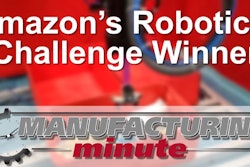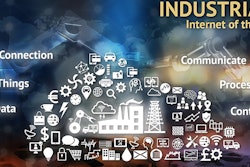After years of buildup, wearable technology finally seems to be meeting expectations. More than 50 million wearable devices shipped in 2015, a number that’s expected to reach 125 million in 2019. Yet while wearable technology is often viewed from a consumer-first perspective, it also presents a major B2B opportunity. And no other industry stands to benefit more than manufacturing, particularly the service supply chain.
Seventy-five million wearables will permeate the workplace by 2020. Since this technology is often mobile — and provides sensory features not found in most technologies — it can help manufacturers and their employees achieve the best possible results.
With this in mind, here are three ways wearable technology will impact the service supply chain, and redefine the way employees accomplish tasks.
Less Friction for Workers
By removing the friction that exists with handheld devices, wearable technologies enable a more seamless workflow, translating to greater productivity. According to a University of London study, wearable tech increased productivity among workers by 8.5 percent, and raised job satisfaction levels by 3.5 percent.
As voice-based technology becomes more advanced, wearables will begin incorporating them into their designs, eventually developing into hands-free devices. These advances are likely to attract more companies to wearable technology than ever before, causing developers to begin designing their apps for the modern wearable tech-connected workflow.
Operational Efficiency
Unplanned product downtime can leave a big dent in manufacturers’ pocketbooks, and have even more far-reaching consequences in today’s competitive manufacturing landscape. For every minute a piece of machinery is out of service, businesses lose revenue. And the more time it takes for manufacturers to report issues, the more money they’re likely to lose. While this problem may seem inevitable, what if downtime could be mitigated, or prevented altogether?
Wearable technology allows employees to more efficiently report mechanical problems, service disruptions and other issues that crop up on the supply line. Also, as more pieces of machinery become connected to IoT — an industry projected to be worth $3.7 billion by 2020 — wearable technology will be able to facilitate better oversight of machine performance. It will also allow maintenance teams to engage in more informed preventative upkeep in real-time.
Field Service
Beyond the factory floor, wearables also present many benefits for businesses when it comes to field service. For manufacturers, the field service technician is often the face of the brand, interacting most often with customers. The level of service they provide impacts customer satisfaction and retention, as well as brand perception. According to BI Intelligence, it takes “12 positive customer experiences to negate the poor impression left behind from one unresolved, bad experience.” So it’s important to get customer interactions right and meet their needs at every service call.
Wearable technology allows field service technicians to get the information necessary to promptly respond to customers with pressing needs. For example, equipping field service technicians with Google Glass allows them to sync up with internal product maintenance teams to better diagnose and resolve malfunctions. This is all critical to delivering exceptional customer experience — a key competitive differentiator.
Wearable technology is still a work in progress. Battery capacity, for example, is in need of improvement. And, there are still functionality and usability kinks that need to be worked out. However, as investments and innovations keep growing, wearable technology is on track to be a fixture in the service supply chain workforce of the future.
Gary Brooks is CMO at Syncron.






















